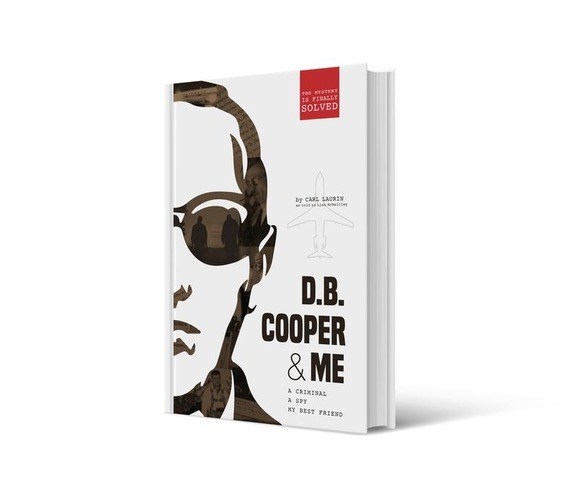GRAND RAPIDS, Mich., May 16, 2018 /PRNewswire/ -- After a 20-year investigation, the believed identity of D.B. Cooper will be revealed in a press conference May 17th. D.B. Cooper is the infamous skyjacker who boarded a Boeing 727 in Portland that was heading to Sea-Tac in Seattle, Washington, on Thanksgiving Eve, 1971. He demanded a $200,000ransom before jumping out of the plane at 10,000 feet. Evidence, including almost-daily discussions over a 14-year period and 3+ hours of audio recordings featuring the skyjacker, was compiled by Cooper's best friend. It was then analyzed by a Certified Fraud Examiner and forensic linguist. The audio recordings, created in 2008, include Cooper discussing skyjacking details that were not known to the public prior to the FBI's information release in 2015.
A press conference regarding this announcement and an exhibition of its supporting evidence will be held Thursday, May 17, 2018, at the Amway Grand Plaza Hotel in Grand Rapids, Michigan.
Additional evidence includes:
- Correct flight path and landing zone identified
- Witness testimony from an individual who spoke with Cooper within an hour of his jump
- Documentation concerning how the $200,000 ransom was spent
- Confessions from Cooper to two individuals at two different times
- An article of clothing Cooper wore during the jump
D.B. Cooper Identity Announcement Press Conference
|
Date:
|
Thursday, May 17, 2018
|
|
Location:
|
Amway Grand Plaza Hotel - Pantlind Ballroom
|
| |
187 Monroe Ave NW, Grand Rapids, MI 49503
|
|
Announcement Time:
|
1:00PM ET / 12:00PM CT
|
|
Media Q/A:
|
Immediately following announcement
|
|
Parking:
|
Onsite parking is available for media, including street parking for tower vans
|
The investigation was spearheaded by Principia Media, a Grand Rapids, Michigan-based publishing company, after being approached with overwhelming evidence. The company has since worked with Cooper's best friend Carl Laurin, the person who captured the audio recordings and other physical evidence, to craft a memoir, D.B. Cooper & Me: A Criminal, A Spy, My Best Friend, telling the story of his friendship with the real D.B. Cooper. The skyjacking was only the beginning for Cooper, as he later went on to become a high-level covert intelligence operative.
Carl Laurin will be in Grand Rapids and participating in a D.B. Cooper & Me: A Criminal, A Spy, My Best Friend book signing on Thursday, May 17, at 5:30PM at Schuler Books, 2660 28th Street SE, Grand Rapids, MI 49512. The event will begin with a reading of excerpts and a guest Q&A at 5:30PM, with the physical book signing at 6:30PM.
For more information regarding this announcement and press conference details, please contact Julie Hurley, This email address is being protected from spambots. You need JavaScript enabled to view it.; 616-460-5070.











